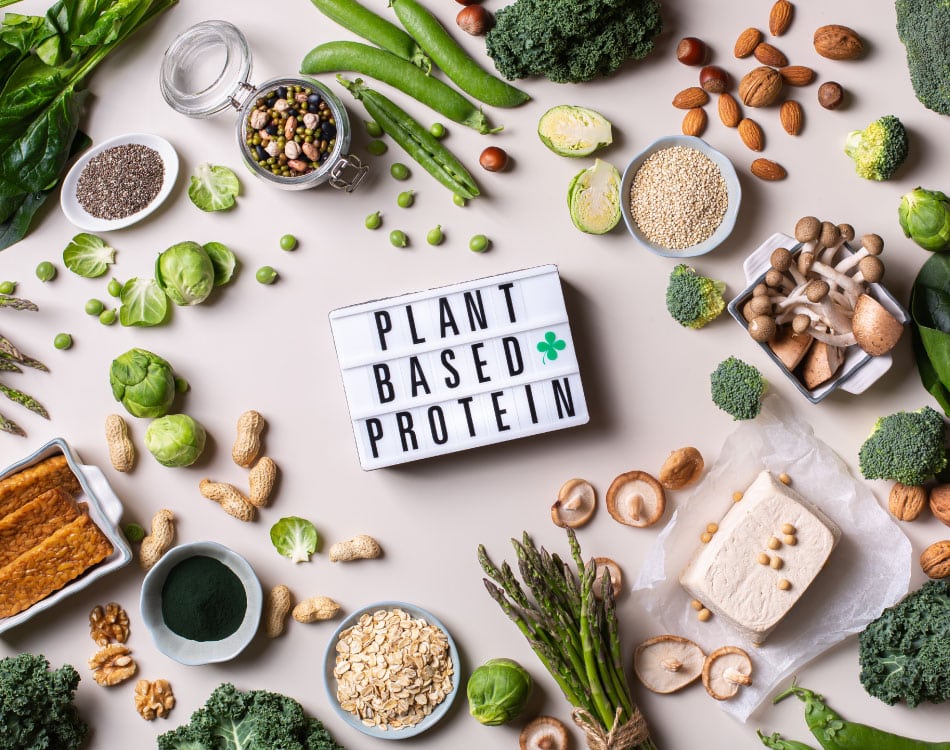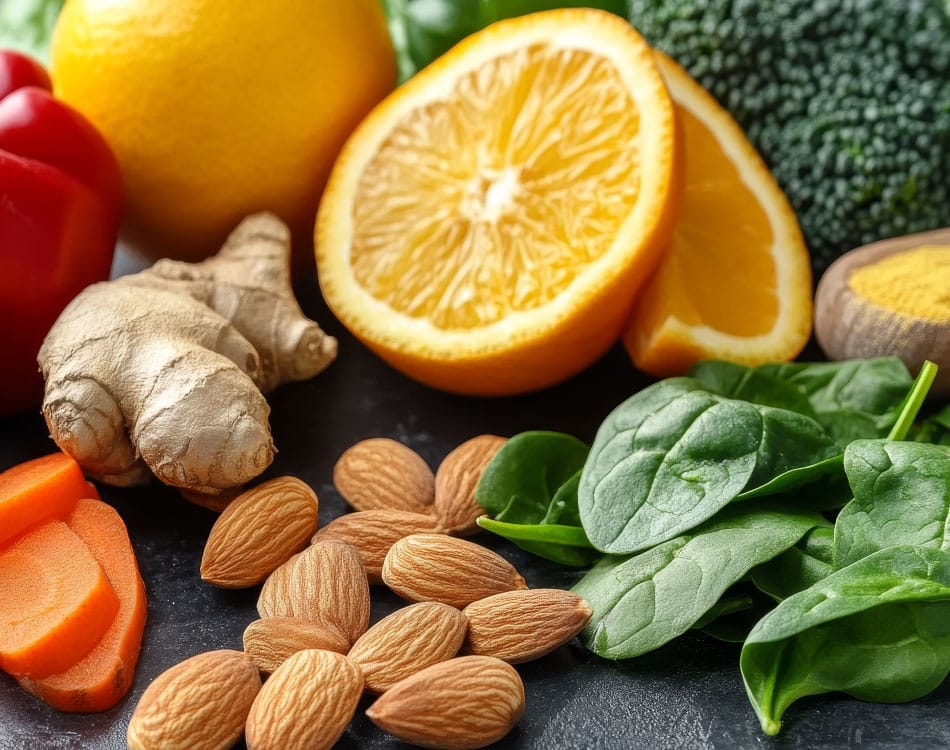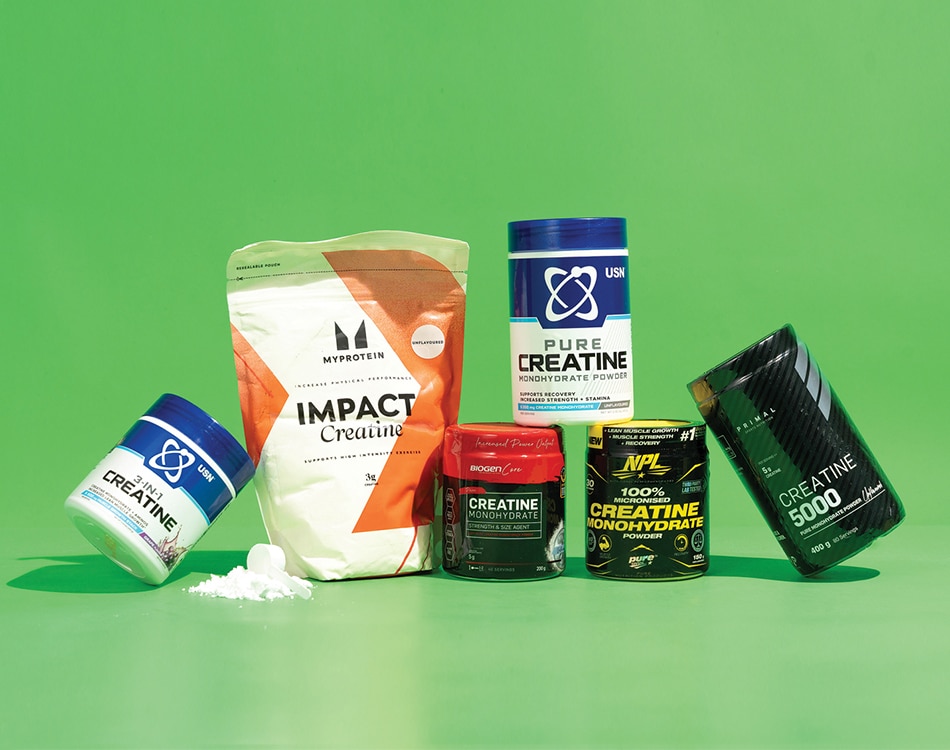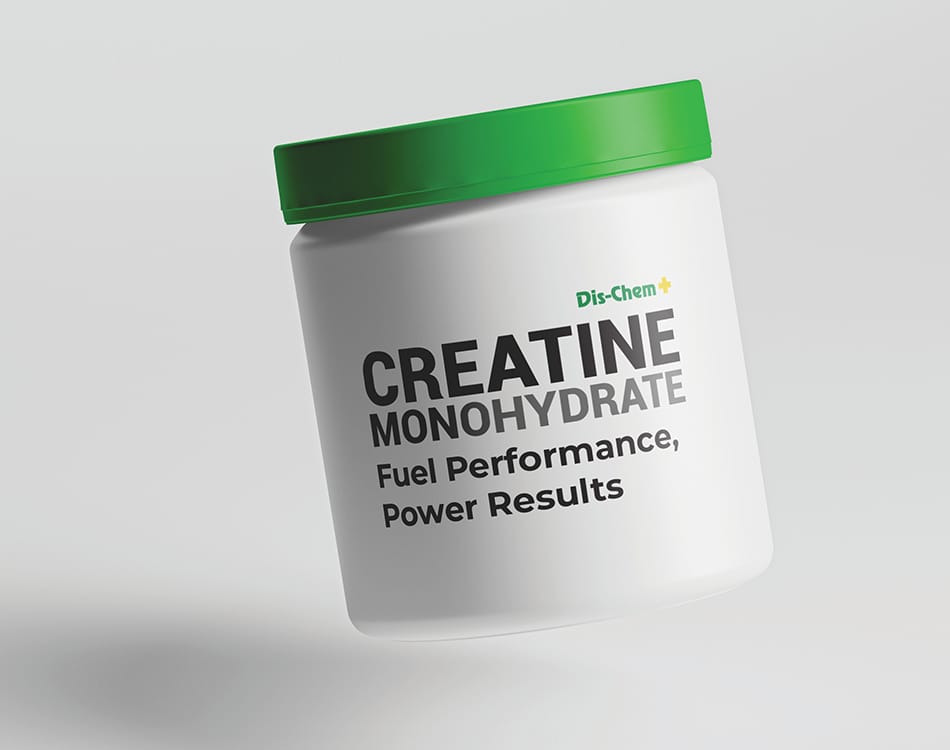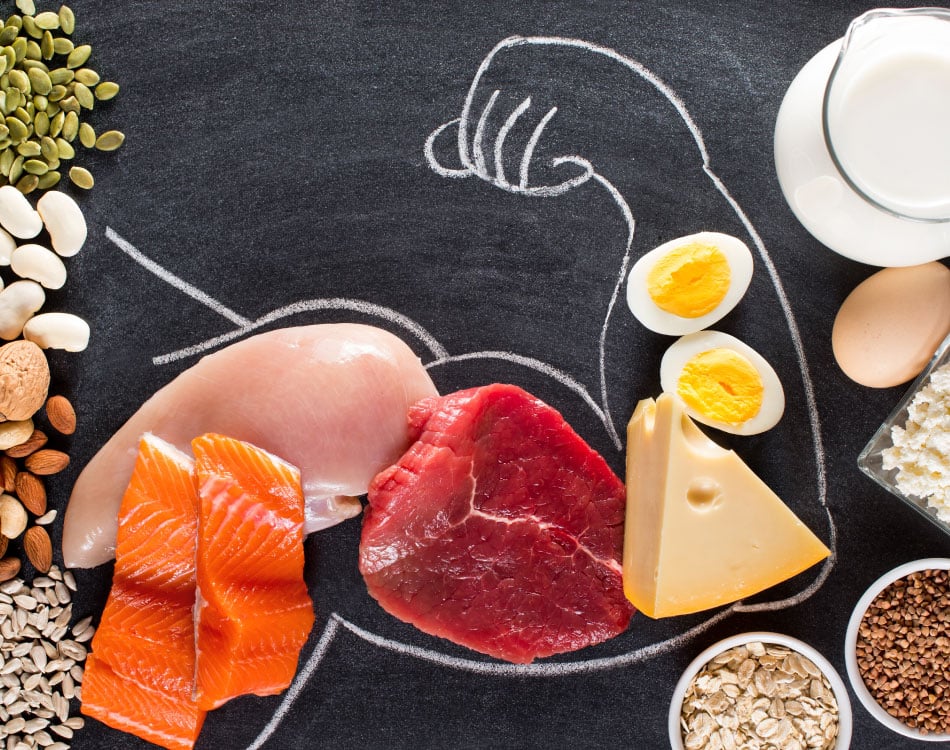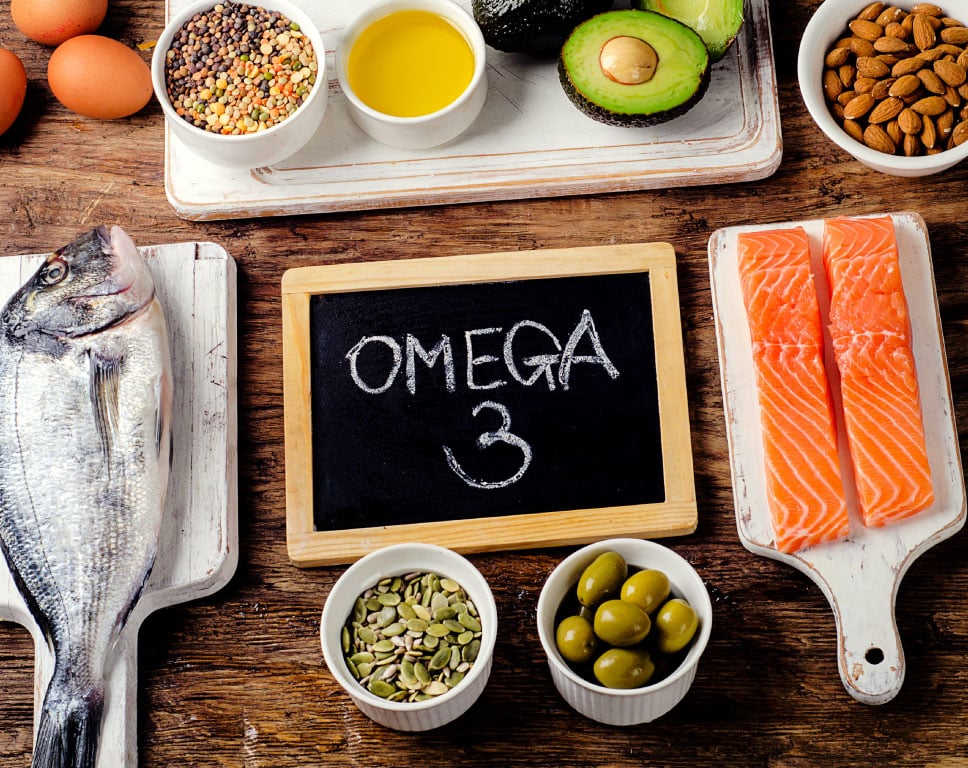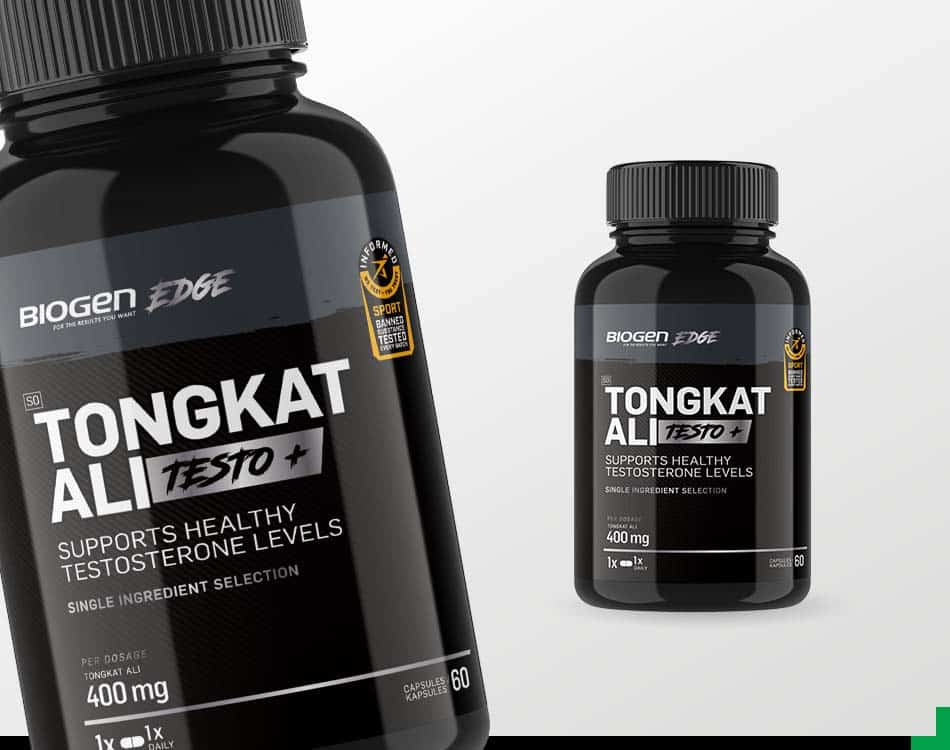The belief that animal protein is superior to plant-based sources is outdated. With proper planning, a plant-based diet can meet all your protein requirements, offering numerous health benefits.
Why Go Plant-Based?
People choose plant-based diets for environmental, ethical, and health reasons. One key health benefit is reduced inflammation.
Research1 shows that red meat increases inflammatory markers like C-reactive protein (CRP), while whole grains help reduce them.
Lower inflammation supports better recovery, reduced oxidative damage, and improved overall health.
Protein Power of Plants
Research is also debunking the myth that animal protein is superior. Studies2,3 have found that brown rice protein builds and maintains muscle as effectively as whey.
Additionally, plant-based diets are linked to lower risks of chronic diseases, including heart disease4.
Get the Basics Right to Transition to Plant-Based Protein
Whatever your reason for choosing to include plant protein in your diet, there are a few important tips to follow to make a successful transition and reach your protein goals:
-
Start Gradually
Ease into plant-based eating by incorporating meat-free meals, like “Meatless Mondays.” Swap animal proteins for plant-based alternatives such as legumes, nuts, and whole grains. Plant-based protein powders are also great for shakes and recipes.
-
Stick to Familiar Meals
Modify your favourite dishes using plant-based ingredients. Swap beef for lentils in spaghetti Bolognese or use chickpeas instead of chicken in curries. This keeps flavours familiar while making the transition easier.
-
Combine Proteins for a Complete Amino Acid Profile
Many plant proteins lack one or more essential amino acids, but combining different sources—like beans with rice—creates a complete protein profile for muscle repair and growth.
-
Understand Serving Sizes
Plant-based proteins are less bioavailable than animal proteins, meaning you may need to eat larger portions. For instance, 100g of steak provides about the same protein as 250g of black beans.
-
Consider Digestibility
Animal proteins are highly bioavailable, which means 94-99% of their protein content is digested and absorbed5.
However, your body tends to absorb significantly less plant protein. For example, various types of dry beans and millet have low protein digestibility of 75–79%5, which can limit the absorption of some of the protein and other key nutrients.
That means, depending on your plant protein sources, you might need to eat more plant foods to meet your daily protein intake requirements.
-
Supplement Wisely
To ensure adequate protein intake, consider plant-based protein powders that blend multiple sources to offer a full amino acid profile. Supplements can make it easier to meet daily protein goals, especially for active individuals6.
Final Thoughts
Switching to plant-based protein is not only possible but also beneficial. By following these steps, you can effectively fuel your body, enhance recovery, and improve overall health while reducing your environmental footprint.
References:
- Papier K, Hartman L, Tong TYN, Key TJ, Knuppel A. Higher Meat Intake Is Associated with Higher Inflammatory Markers, Mostly Due to Adiposity: Results from UK Biobank. J Nutr. 2022 Jan 11;152(1):183-189. doi: 10.1093/jn/nxab314. PMID: 34587250; PMCID: PMC8754571.
- Douglas S Kalman., et al. “The Body Composition Effects of Extra Protein in Elite Mixed Martial Artists Undergoing Frequent Training Over a Six-Week Period”. EC Nutrition 13.6 (2018): 396-401.
- Moon, J.M., Ratliff, K.M., Blumkaitis, J.C. et al.Effects of daily 24-gram doses of rice or whey protein on resistance training adaptations in trained males. J Int Soc Sports Nutr 17, 60 (2020). https://doi.org/10.1186/s12970-020-00394-1.
- Perraud Elie , Wang Juhui , Salomé Marion , Huneau Jean-François , Lapidus Nathanaël , Mariotti François; Plant and Animal Protein Intakes Largely Explain the Nutritional Quality and Health Value of Diets Higher in Plants: A Path Analysis in French Adults. Frontiers in Nutrition. VOLUME 9; 2022. https://www.frontiersin.org/journals/nutrition/articles/10.3389/fnut.2022.92452. DOI=10.3389/fnut.2022.924526. ISSN=2296-861X
- S. Gilani, N Lee, in Encyclopedia of Food Sciences and Nutrition (Second Edition), 2003.
- Barr SI, Rideout CA. Nutritional considerations for vegetarian athletes. Nutrition. 2004 Jul-Aug;20(7-8):696-703. doi: 10.1016/j.nut.2004.04.015. PMID: 15212753.

